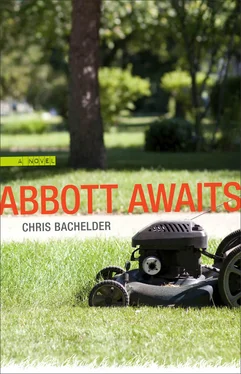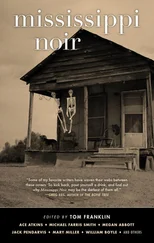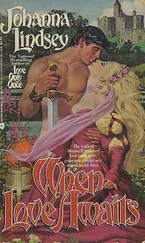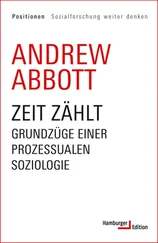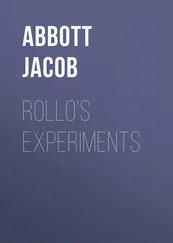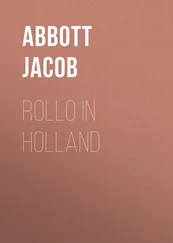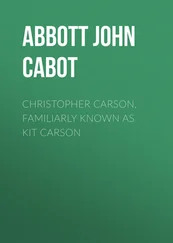21 Abbott Visits the Coffee Shop
While the earliest shoes that we have found are nine thousand years old, some scientists believe that humans began making rudimentary shoes as early as thirty to forty thousand years ago. Bombs date back at least as early as 1281 AD, when the Mongols lobbed powder-packed ceramic balls at the Japanese. (The shards are extant.) Two nouns, separated for centuries, finally conjoined. Two concepts made one. Do not talk to strangers, Abbott will one day warn his children. Nor to people with shoes. He sits in the coffee shop with his daughter in his lap. Her eyes are still swollen from crying. He scans the crowded room and does not see any bombs. Because he’s modern, he knows this means one of two things: Either there are no bombs in the coffee shop, or there are bombs in the coffee shop.
22 Abbott’s Supporting Role
This afternoon Abbott’s wife shuffles into the living room and announces that their daughter’s bed is covered in mold. “Right through the pillowcase,” she says, “through the pillow, onto the sheet, through the sheet, onto the mattress pad.” Abbott gets to be the calm one today. He thinks for a moment. “I bet it’s because we put her to bed with wet hair after her bath,” he says scientifically. His wife seems uninterested in causation. “Smell this!” she says, thrusting a pink pillowcase into Abbott’s face. He smells dutifully. The odor is quite bad, but he believes they’ll all get through this. He believes they’ll be stronger for it. “Moldy bed!” she exclaims. His wife’s hysteria creates in him a powerful sense of tranquility that borders on drowsiness. This means the marriage is working. “Is it mold or mildew?” he asks, yawning and slumping deeper into his soft chair. He means to diagnose, not jest. “Social services won’t care!” his wife says. “I bet it happens a lot,” Abbott says, “but it’s one of those things that people don’t want to talk about.” His wife appears to consider this remark. “My God,” she says, “we are horrible parents.” “No, we’re not,” Abbott mutters. “We’re average parents.” His wife flees the living room with the offending linens, and her wild exit plunges Abbott into a deep, narcotic sleep. Hours later, he will learn on the Internet that mold and mildew are essentially the same thing, and also that they are much different.
The original Curious George (New York: Houghton Mifflin, 1941) is making Abbott uncomfortable as he reads it to his daughter for the first time (morning, family room, carpet, sun, heat, coffee, triceratops). Perhaps it should be on a higher shelf at the library. Or perhaps it should have a warning sticker. Not banned , of course, Abbott would never say that. But the book is a surprise. Prior to this morning, Abbott and his daughter have read only George’s entertainingly dramatic and noncontroversial adventures: Curious George Makes Pancakes; Curious George and the Dump Truck; Curious George in the Snow; Curious George’s Dream . Now this, though, the original, in which the man with the yellow hat comes to the jungle and exploits George’s preternatural curiosity to capture him in a bag and forcibly remove him from his home. And later, in the big city, George has occasion to smoke a pipe — a pipe —and then he gets thrown into prison. Not jail — prison. There are rats eating George’s food. The pages of the old book are ripped and faded. Abbott’s daughter loves the story. George escapes prison but then ends up at the zoo. Abbott tries to read quickly and quietly; he mumbles, points to squirrels out the window. But the girl’s attention is fixed on George’s trauma. Abbott’s wife calls on the cell phone from the Big Y as Abbott hoped she would. These days, they have their best talks on the phone. “I’m sorry about last night,” she says. Abbott says he is too. He says, “Don’t stand on that chair, honey.” Abbott’s wife says she had a strange dream when she finally fell asleep last night and she was going to tell Abbott about it this morning but she forgot and now she can’t remember the dream. “Maybe you’ll remember it,” he says. “Do you need anything from the store?” she says. “I don’t think so,” he says. Abbott’s daughter wants to read the original Curious George again. “I ran into a woman from yoga,” Abbott’s wife says, “and she was telling me about this family fair coming up, and I said thanks, we’d definitely consider it, but then afterward I realized it was on the day we’re having the baby.” “Yeah, so,” Abbott says. “So,” she says, laughing. Abbott’s wife asks Abbott what they’re doing, and he says they’re reading the original Curious George . He tells her about the pipe. “This is just a hard time,” Abbott’s wife says. “Just a minute, honey,” Abbott says, “I’m talking to Mom.” Abbott’s wife says, “One of these days. You know?” Abbott says, “I know. I know.” He does not know what his wife means. He thinks she could mean any number of things, and he thinks he agrees with all of them.
24 Abbott Stumbles toward a Theory of Use
When the generous children’s librarian gives Abbott’s daughter a package of animal stickers, the girl wants to open them immediately, right there in the library. Abbott knows that if he opens the stickers, she will use them up within minutes. He kindly tells her no, explaining that she should save her stickers for a special time. Abbott’s daughter ignores his answer. “Dad open these?” she says. Abbott again says no. He says, “Let’s just wait and open these later, OK?” “Dad open these?” she says again. “Not now,” Abbott says. “You just got them, honey,” he says, which is of course his daughter’s point. Why is he taking a stand on this matter? What golden application does he envision for these stickers? “Dad open these?” the girl says. “I said no,” Abbott says. There is no end in sight. The child’s universe has contracted to this package of animal stickers, and there is no way Abbott is going to back down now, even if he wants to, his idea being that an unreasonable position held unwaveringly amounts to good parenting. His resoluteness is a value unto itself, regardless of the foolish notion about which he is being resolute. “I want these,” she says. “I know you do,” Abbott says, trying to communicate his empathy. “Dad open these?” “I said no and meant it,” he says. Fortunately for everyone, Abbott’s wife is in the library too. “You two,” she says. She opens the package with her teeth and gives the animal stickers to their daughter. Abbott knows that parents should not undermine each other’s authority, but he is grateful for the intervention. The girl sits on a bench and begins to put the stickers on her neck and throat. She peels off one after another and presses them onto her skin. Shouldn’t she at least save some of them? Abbott thinks. “Shouldn’t she at least save some of them?” he says, but nobody answers. When the girl’s neck and throat are covered, she begins putting stickers on her chin and cheeks. She uses every single animal sticker, probably two dozen. She is delighted. She smiles as she touches her face lightly with the tips of her fingers. She drops the sticker backing onto the floor, and Abbott picks it up. Abbott’s wife finds a small mirror in the library dollhouse and holds it up so their daughter can see. The girl loves the stickers. The generous children’s librarian who gave the stickers to Abbott’s daughter walks past, waving and smiling, apparently untroubled by the prodigality. Abbott grudgingly understands that this is what the stickers were for. The stickers were for his daughter’s neck and face. And he understands that had she done something different with the stickers, then that different thing would have been what the stickers were for. It is not difficult for Abbott to imagine his daughter bringing home a gentleman friend twenty-five years hence. (Make it a female lover if you want — it does not matter to the story.) Abbott, by then no doubt a full professor or perhaps even an endowed chair, will have four cocktails, and he will win over his daughter’s beloved with timely allusions to Oscar Wilde and Joe Montana. Later, in bed — Abbott and his wife will allow them to sleep together — the gentleman (or whoever) will lounge dissolutely on his elbow and say, “Your parents are great. Especially your dad. He’s really great.” Abbott’s daughter will make that face that can be traced back to infancy. She’ll say, “He’s mellowed a lot. When I was a kid, he was the kind of dad who wouldn’t let me put stickers on my face. And he’d correct my grammar in a way that he thought was fun and loving. And he’d tell me to be careful all the time. God, he’d tell me to be careful when I was making toast.” And then they will lie together in that old bed, most likely naked, and for a long time talk about fathers, the failures of fathers.
Читать дальше
